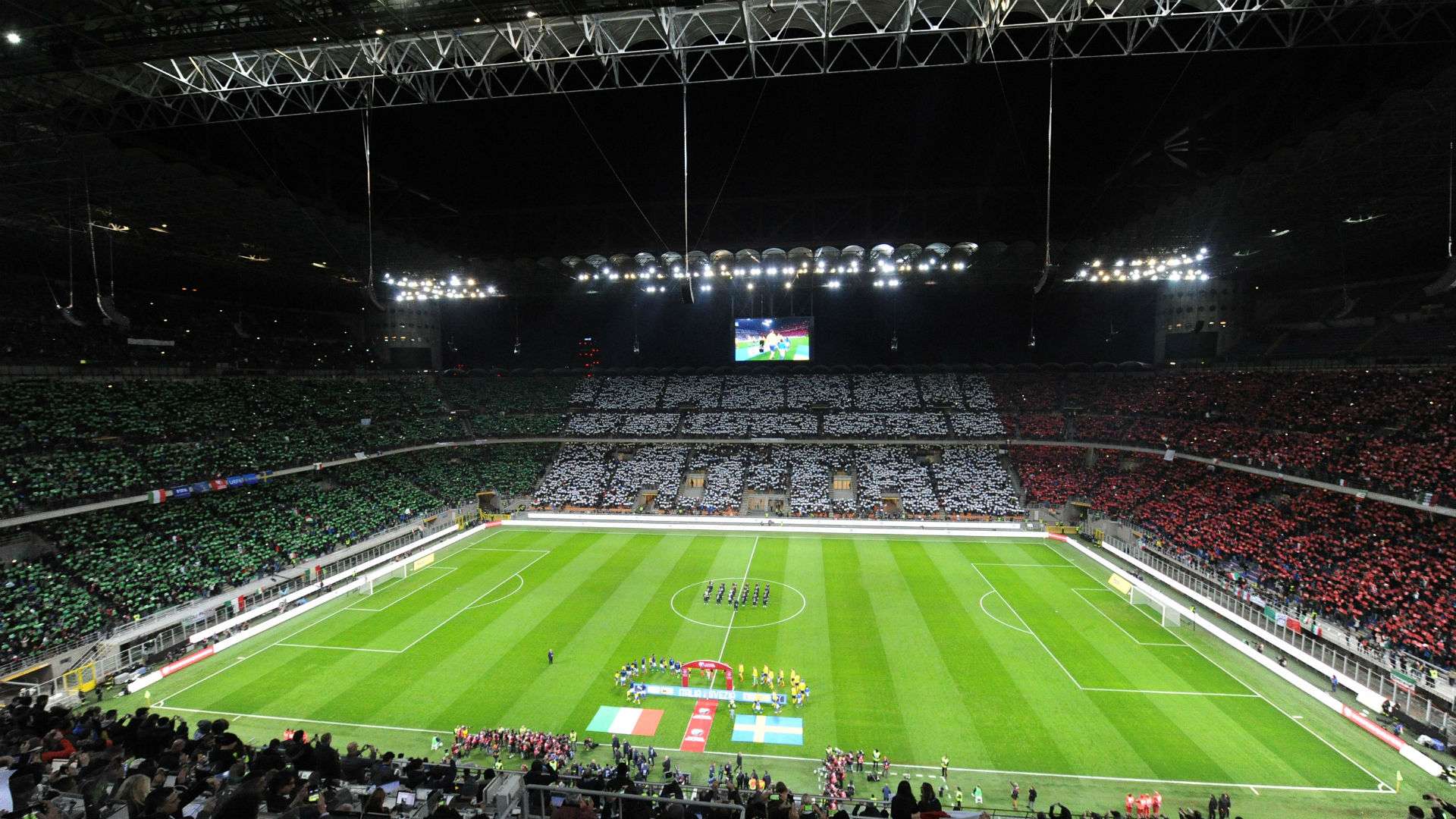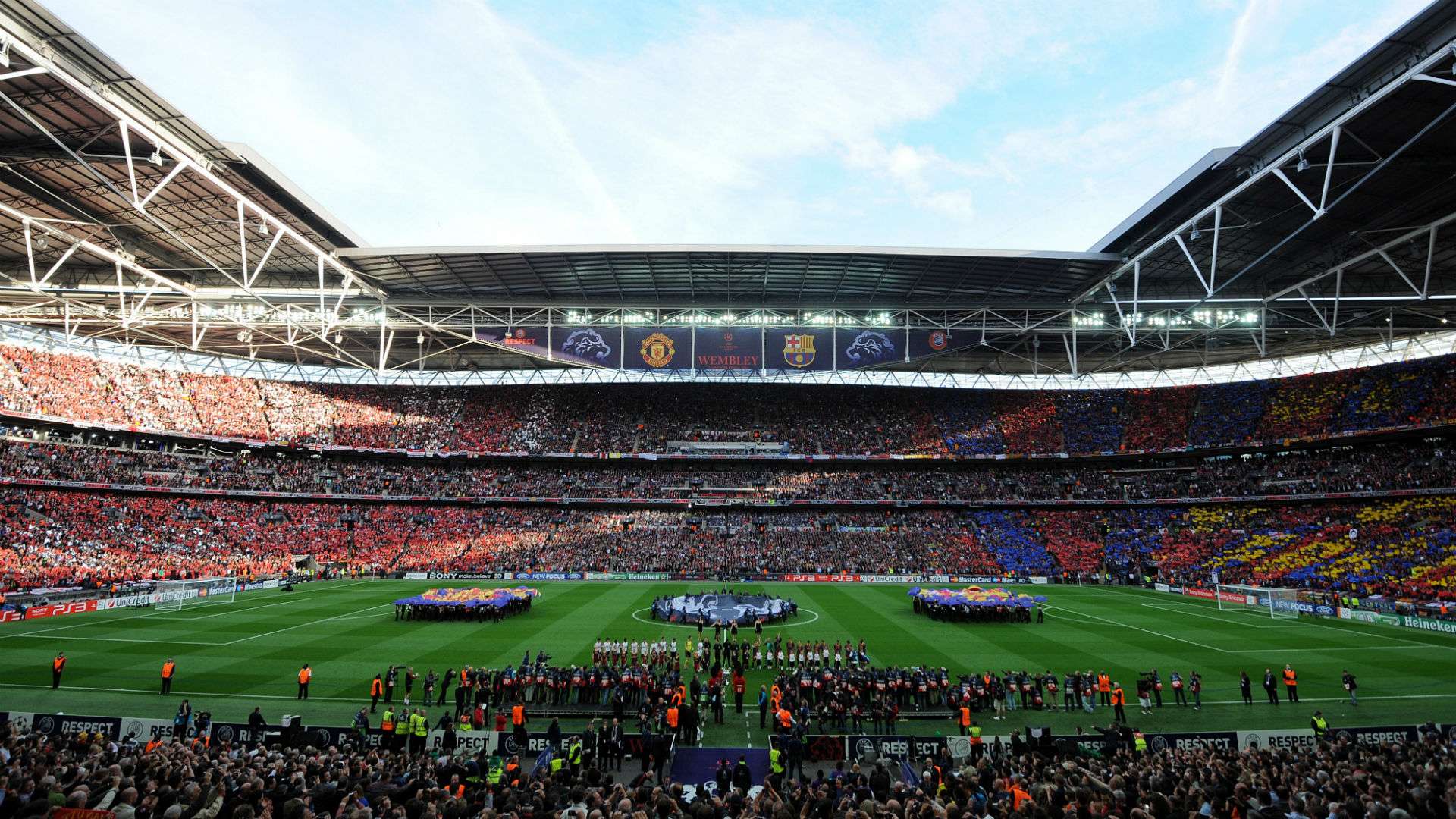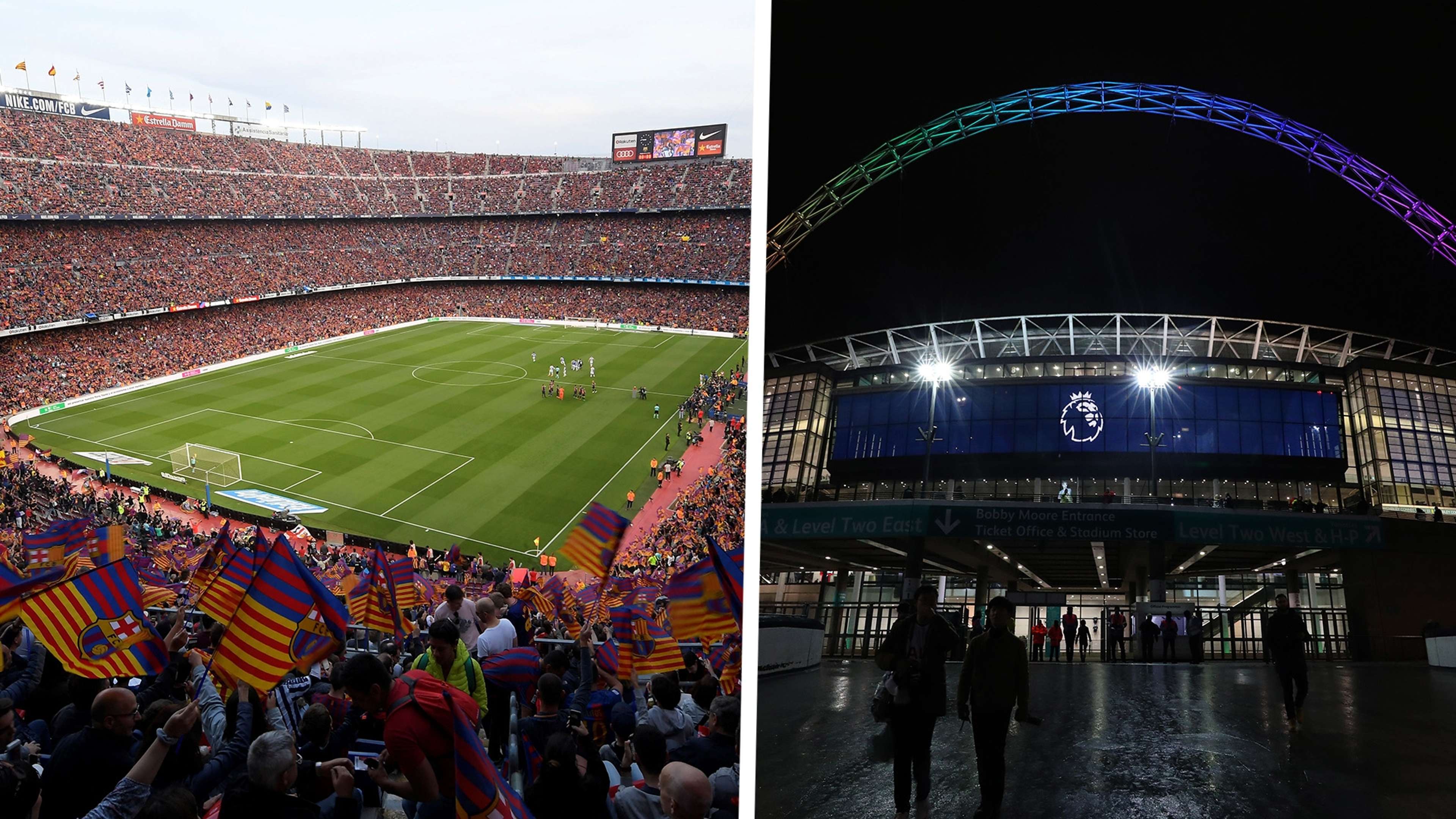A football stadium is a special place. It is the arena in which players battle for glory and the stage on which they practice their craft.
Some grounds have attained an almost mythical status, where echoes of past prestige can be heard even in the stillest of moments.
They are architectural feats, with each building representing an important part of the fabric of a club, a city and even a country, a focal point for society – and Goal rounds up the largest in the world.
Biggest football stadiums in the world
Some of the biggest football stadiums in the world can be found in Europe, where many of the game's most prestigious clubs are situated.
Old Trafford is home to Manchester United, one of England's most successful teams and, with a capacity of 74,994, it is one of the biggest football grounds in the UK. It is affectionately known as the 'Theatre of Dreams' by United fans.
AC Milan and Inter's home, Giuseppe Meazza Stadium (also known as San Siro), is the biggest in Italy at just over 80,000 in capacity. Occasionally used by the Italy national team, San Siro has hosted a number of European Cup and Champions League finals.

Real Madrid play their home games at the Santiago Bernabeu Stadium, which houses 81,044 spectators, while France's national stadium is the 81,338-capacity Stade de France. Borussia Dortmund boast the biggest stadium in Germany - their Westfalenstadion can facilitate 81,365 fans at a maximum.
New Jersey's MetLife Stadium, which is home to NFL sides the New York Giants and the New York Jets, is one of the biggest football grounds in the United States and has hosted a number of international games. Its maximum capacity is 82,500, which makes it slightly bigger than Giants Stadium, the ground it replaced.
Brazil's Maracana in Rio de Janeiro is the biggest stadium in the country and the jewel in its football crown. The 78,838-capacity venue, which is home to Flamengo and Fluminense as well as the Brazil national team, has hosted two World Cup finals, in 1950 and 2014. Amazingly, just under 200,000 people packed into the original Maracana for the 1950 World Cup final between Uruguay and Brazil.
The 2018 World Cup final was played at the Luzhniki Stadium in Moscow. It can hold 81,000 fans and is home to the Russia national team and also serves as Spartak Moscow's home ground when they play in the Champions League.
 Getty Images
Getty Images
While all of the aforementioned stadiums are among the biggest in the world, none of them make the top 10, the majority of which are found in Asia and Africa.
Salt Lake Stadium in Calcutta, India was once the biggest football venue in the world and holds 85,000 people, while Borg El Arab Stadium in Alexandria, Egypt can fit 86,000 fans.
Bukit Jalil National Stadium in Kuala Lumpur, which is home to the Malaysia national team, follows with a capacity of 87,411, while Mexico's Estadio Azteca is slightly bigger and can hold 87,523 fans.
The 'Home of Football', London's Wembley Stadium, is the biggest football stadium in the UK and the second biggest in Europe with a capacity of 90,000. That makes it slightly smaller than the biggest football stadium in the United States, which is the 90,888-capacity Rose Bowl Stadium in Pasadena, California.
 Getty Images
Getty Images
South Africa is home to the fourth biggest football stadium in the world - FNB Stadium, otherwise known as Soccer City. The 94,736-capacity ground is not just famous for hosting the 2010 World Cup final, it was also the stage for Nelson Mandela's first speech in Johannesburg following his release from prison in 1990.
Barcelona's Camp Nou is not the biggest stadium in the world, but it is the biggest in Spain and Europe, with a maximum capacity of 99,354. The Catalan venue has hosted a number of finals for competitions such as the Champions League, Cup Winners' Cup and the Olympics.
Melbourne Cricket Ground (sometimes known as 'The G'), which can be found in Melbourne, Australia is mainly an AFL and cricket venue, but it has also held Australia national team games. It houses 100,024 and, despite that lofty number, it is a distant second to the biggest stadium in the world: North Korea's Rungrado 1st of May Stadium.
Also known as May Day Stadium, the Pyongyang venue, which houses a number of different sports, including football, has a maximum capacity of 114,000.
